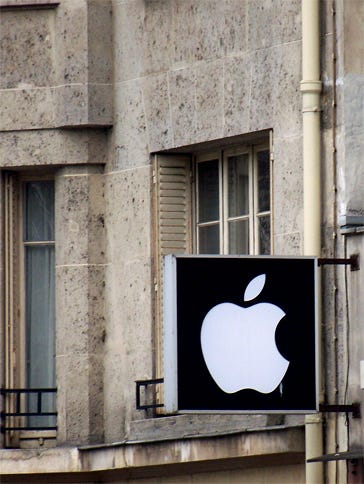
Tim Cook’s announcement in May that Apple has created a $1 billion fund to support advanced manufacturing in the United States has been framed as an initiative to support domestic-job creation in new industries, yet it’s hard to see how that money will actually create many jobs. Anyone with the ability to take a critical eye to Apple’s stellar propaganda machine can see that the fund has little to do with jobs and everything to do with taxes.
For years, Cook has been campaigning for “comprehensive tax reform” and a simplification of the corporate tax code. These terms essentially mean he wants Apple to pay less in taxes, particularly on the more than $200 billion the company holds offshore. Cook claims that Apple can’t bring that money back to the United States, but the truth is that he simply doesn’t want to pay the tax bill.
Anyone with the ability to take a critical eye to Apple’s stellar propaganda machine can see that the fund has little to do with jobs and everything to do with taxes.
In 2013, Cook testified before Congress to defend Apple’s tax practices and call for lower tax rates on the company’s earnings. He supported both Democrats and Republicans during the 2016 election to buy support for his desired changes and brought up tax cuts during the meeting Trump held with tech executives at Trump Tower in December. Cook continues to fight for tax cuts above all else, despite Trump’s destructive policies, because he believes Apple should still “engage when we disagree.” It is particularly telling that while Apple signed a brief to challenge Trump’s first Muslim ban, it was one of the few tech companies absent from the brief to oppose to his second attempt.
Why has this happened? Why has the focus seemingly changed from delivering a curated line of simple yet powerful products that “just work” to shifting as much money as possible to shareholders?
Cook’s focus on lower corporate tax rates shouldn’t come as a surprise. Pleasing shareholders seems to have become his primary goal as Apple’s CEO — at the detriment of the product line. iPad sales declined for three years before finally returning to growth in the most recent quarter, mainly due to bulk purchases from the education and business sectors; the Apple Watch continues to be a glorified Fitbit with underwhelming sales; and the forthcoming HomePod looks to be little more than a speaker with limited Siri functionality to give the impression that it can compete with Amazon’s Echo. That doesn’t even address the problems with the Mac lineup, where Apple has finally realized that its “Pro” no longer deserve the designation, and where the iterative nature of the iPhone means it no longer wows with new innovations, as it did in the past. Hopefully, the company has been holding some impressive changes for the 10th-anniversary model.
Why has this happened? Why has the focus seemingly changed from delivering a curated line of simple yet powerful products that “just work” to shifting as much money as possible to shareholders? The answer seems to lie in the deference Cook has paid to some of Apple’s largest shareholders, who have urged him to increase the dividend and pay more attention to the share price so they can reap greater wealth from a company that seems to have lost its way.
From 2013 to 2014, Carl Icahn bought $3.6 billion worth of Apple stock to gain influence with Cook and push him to use Apple’s hoarded billions to buy back its own stock. Cook eventually gave in, and Apple has now spentmore than $144 billionbuying back its own shares, in order to artificially inflate the share price.People like Icahn are nothing more than vultures. They don’t care about the companies whose stocks they buy; they only care about maximizing their returns. Having been successful in getting Apple to inflate its share price through buybacks, Icahn sold all his Apple stock in 2016 — at a $2 billion profit.

Apple’s notoriously high prices are necessary to maintain its large profit margins. It’s sitting on more than $200 billion, and that’s after the billions it’s distributed in dividends and used to buy back its stock.Cook was always more of a numbers guy than a product guy, and it shows in the direction in which he’s taken the company. The product line has ballooned with sizes and colors to fill every niche, while specs have disappointed and prices have continued to rise.
If companies are going to claim they represent progressive values, they need to champion them with actions instead of words.
It’s true that Cook has made a point of making Apple more socially responsible by matching employees’ charitable contributions and speaking out on certain issues, but these efforts seem to be nothing more than positive PR when placed alongside his attempts to curry favor with the evil orange force in the White House. Apple isn’t the only tech company trying to cozy up to Trump for the sake of its bottom line, but its position as the largest publicly traded company and its clear customer focus mean it should be held to a high standard.
If companies are going to claim they represent progressive values, they need to champion them with actions instead of words. They shouldn’t get away with buying the support of heartless politicians who are making everyday life more difficult for millions of people by trying to avoid paying the taxes that support the very society that made their success possible.







